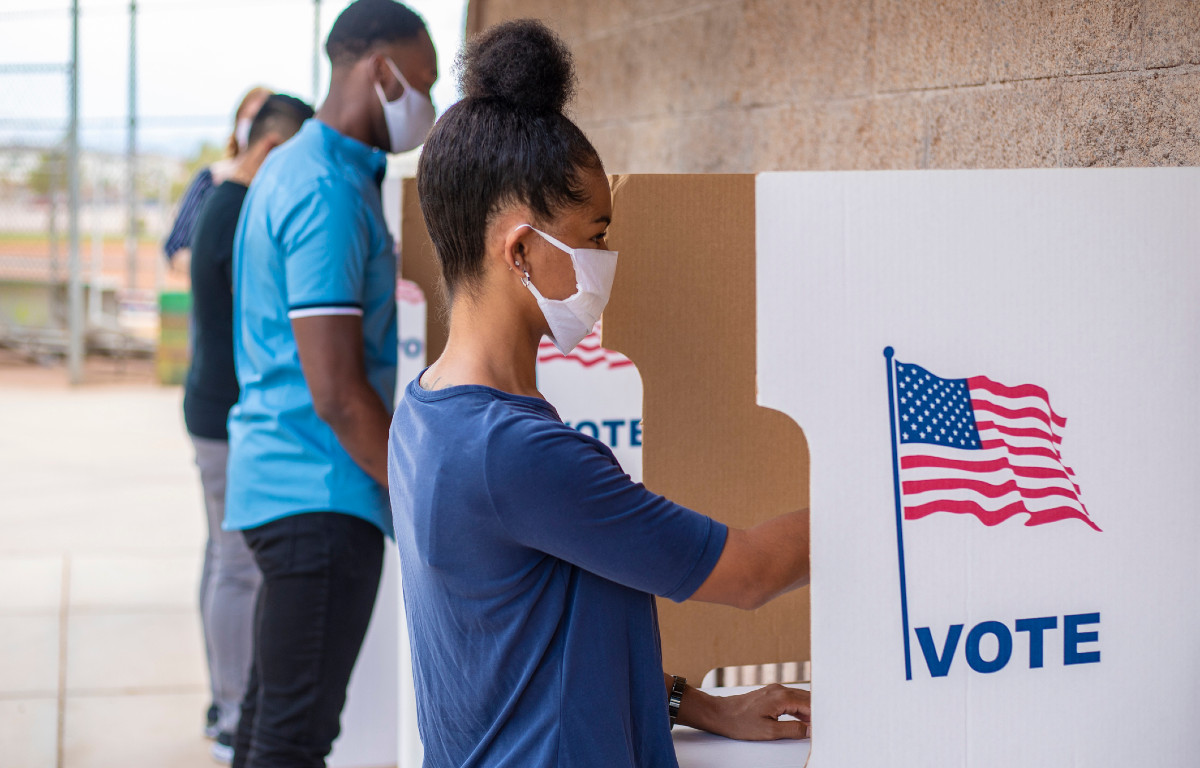 At this moment, parents of school-age children are a focal point of the struggle in the United States against COVID-19. Debates over whether to open schools have now evolved into questions of how schools will function, technology challenges, income disparities, and what the health risks are for students, teachers, staff, and families. The entire situation demonstrates the interconnection between parental concerns and public health.
At this moment, parents of school-age children are a focal point of the struggle in the United States against COVID-19. Debates over whether to open schools have now evolved into questions of how schools will function, technology challenges, income disparities, and what the health risks are for students, teachers, staff, and families. The entire situation demonstrates the interconnection between parental concerns and public health.
As we head into the final stretch of the 2020 presidential election, it is useful to consider how parents’ views of political and social events can affect their health and their health decisions. An understanding of parental priorities should inform the leaders of family-serving systems and policy-makers across the political spectrum as they try to meet the health needs of children. Yet even though public policies affect child health, a text analysis of U.S. House candidates’ 2008–18 websites found just 13.8% with any pediatric health or education content. (Democrats were five times as likely to offer specific pediatric policies as were Republicans.)
My new study, “National Parent Survey 2017: Worries, Hopes, and Child Well-Being,” in the Journal of Community Psychology, takes a look at some of these issues by examining the sociopolitical concerns of parents in the wake of the 2016 presidential election. I think it is important to examine these connections, as previous research has shown that parental stress can harm the cognitive, social, and physical development of children.
Changing Behavior
My curiosity about this subject was piqued by reports from physicians and other healthcare colleagues in early 2017 about changes in their own patients’ health decisions as a response to new federal policies. For instance, a social worker learned that a patient who missed an appointment was afraid of leaving the apartment after a relative had been picked up by the Immigration and Customs Enforcement agency for possible deportation. For immigrant families and communities of color, changes in government regulations have led to traumatic encounters with authorities, avoidance of medical care, and unmet legal needs.
The hopes and worries of parents as a demographic have not garnered the amount of attention you might expect. I dove into the peer-reviewed literature, looking for general-population surveys of parents about their children’s physical and mental well-being. There weren’t any.
In the fall of 2017, I was determined to learn more about parents’ day-to-day concerns regarding local safety, healthcare, discrimination, school social environment, and bullying, as well as macro/future issues such as climate change. I developed a brief survey that included these items, along with a summary indicator of the sociopolitical environment: “How worried are you about your family’s continued place in America?”
With the help of a crowdsourcing marketplace, I received responses from nearly 1,200 parents from all 50 states. Their top worries were national security (39%), the environment (30.5%), and their “continued place in America” (25.7%). Taking background factors into account, parents of color had significant concerns about their children being discriminated against. In contrast, parents representing dominant cultural groups—non-Hispanic and Christian—were least worried about the future or their “place in America.”
Pandemic and Politics
Their answers about “place in America” are now juxtaposed to the twin crises of COVID-19 and the protests and calls for racial justice in the wake of George Floyd’s murder at the hands of police. You can see the clear crossing of political and health concerns in those protests. Some parents brought their children to Black Lives Matter protests despite the risks of COVID-19 because for them the concern over police brutality is at least equal to the threat posed by the pandemic.
The nearly 200,000 deaths from COVID-19 as of this writing have fully laid bare the nation’s economic and racial inequities and parental concerns over healthcare. Parents uncertain about whether the federal government will provide services to undocumented families are likely making decisions about whether to see doctors or continue treatment based on their fear of government action. Essential workers, many of whom were struggling before COVID-19, find themselves worried that they will bring the disease home to their children or that they will not have the resources to make remote learning work.
The challenges faced by parents as a consequence of this sociopolitical environment are daunting. I am hopeful that there will be more studies examining the role of parents’ political concerns and how they affect health decisions. More important, it is my hope that such studies can help physicians, healthcare professionals, elected leaders, and administrators find ways to assist parents in managing their health and that of their children.

